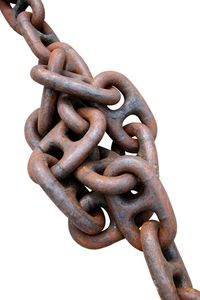Complexes

It may come as a shock to realize it, but a human being is not just one solid big lump of personality, with unified intent and will. This is what most people choose to believe, but the psychological truth is quite different.
In each of us there are many parts, many elements that go into the composition of our personality, of what it is that makes me “me”. Jung called these elements in the psyche “complexes”, for some technical reasons that we don’t need to go into here.
I think that nearly all of us will have had the experience of finding ourselves in the grip of a mood or a way of thinking that seems odd or strange, or where we feel that “something had a grip on me then”, or where we feel “not ourselves”. We can feel this associated with strong emotion or with a sense of compulsivity. Sometimes, it can have what I call a feeling of “time warp” about it, where we even feel ourselves back at some point in our past, feeling a long familiar emotion. I know for a long time, when confronting bosses or employers, used to find myself feeling like I was 10 years old, sitting across the dinner table from my father! Such a feeling reaction is a sure sign of the presence of a complex.
“something had a grip on me then”, or where we feel “not ourselves”. We can feel this associated with strong emotion or with a sense of compulsivity. Sometimes, it can have what I call a feeling of “time warp” about it, where we even feel ourselves back at some point in our past, feeling a long familiar emotion. I know for a long time, when confronting bosses or employers, used to find myself feeling like I was 10 years old, sitting across the dinner table from my father! Such a feeling reaction is a sure sign of the presence of a complex.
The trouble with complexes is that they can end up taking us  places, in our emotions and thinking, that we just really don’t want to go. We can find ourselves over-reacting, or locked into rigid ways of thinking, or compulsively doing things that we just really don’t want to do and that “just aren’t me” in the truest sense of the word.
places, in our emotions and thinking, that we just really don’t want to go. We can find ourselves over-reacting, or locked into rigid ways of thinking, or compulsively doing things that we just really don’t want to do and that “just aren’t me” in the truest sense of the word.
Well, the surprising paradox is that there are good things to be found in our complexes, as we come to understand them, and the pervasive effect that they have on our psyche. Freud said that the royal road to the unconscious is through dreams. Jung disagreed with him at this point: for Jung, the royal road to the unconscious is through the complexes. And it is in the unconscious that our real life is waiting for us.
Real case studies engages us with our complexes, whether they concern our father, our mother, money, cleanliness, social phobias, addictive behaviour, authority figures religious complexes — whatever. It’s only by having the courage and fortitude to bring our complexes into the light of day, usually in therapy, that we can begin to diminish their power, and to feel the energy behind them begin to re-animate our lives.
Do you know where your complexes are? Are you willing to take them on, to really look at them, and see the places in your life where they really run the show? It can be humbling to do this, but it can also make us feel vastly more alive.
To paraphrase, better the complex you know than the complex you don’t!
Thank you to those of you who suggest possible topics for my posts , and how expressed an interest in a post on the topic of complexes. As always I welcome your comments, and I look forward to dialoguing with each of you.
My very best wishes to you on your individual journey to wholeness,.
Brian Collinson
Website for Brian’s Oakville and Mississauga Practice: www.briancollinson.ca
Email: brian@briancollinson.ca
Get “Vibrant Jung Thing” posts delivered to your email using the “FeedBurner” box in the left column!
PHOTO CREDITS: ©Photon75 | Dreamstime.com; © Dononeg | Dreamstime.com
© 2009 Brian Collinson

pary
thank you for your explanation. I am confused regarding supression of
feeling and instincts, as to what goes under Shadows and what goes under complexes. Also if say one is poor but has friends who are wealthy, he or she may develope complex over money; and later may try to improve his or her situation to become as wealthy or may become angry and always talk against wealth, What exacly happens in terms of ego, archetypes, self, etc? Also I appreciate if you could elaborate on mother or father complex. In comparison to the above example, is it lack of having a mother who once took care os us and we do not have in adulthood, is it an archetype that has a function in childhood and we need to overcome it? I appreciate your time.
pary